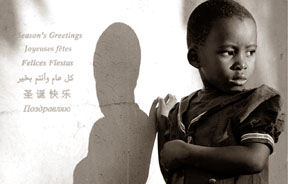|
observer |
|
|
|
|
|
OTHER LINKS |

|

|

|
|
Commercial sex industry in Sri Lanka thrives...: How ignorance causes AIDSThe commercial sex industry in Sri Lanka, like elsewhere in the world thrives because there is a demand for it.
They had been driven into the sex industry at a young age. The problem these women face, is that they do not seem to understand the danger of HIV virus or the AIDS epidemic. Evidence shows that some women had even practised condom free sex for a higher price. Dr. Samarakoon said women between the age groups of 15-24 years do not know about HIV or AIDS and do not know to avoid it. "We have to take steps to eradicate the virus completely among young persons if we are to overcome the epidemic. The risky behaviour patterns of young persons have to be identified to stop the spread of HIV transmissions. Knowledge alone wasn't going to help." The study further states that a fair proportion of in school adolescents appear to be sexually active. Among 14-19 year olds in schools, 6 per cent reported that they have experienced heterosexual intercourse, while 10 per cent reported having homosexual relations. The prevalence of heterosexual experience was 14 per cent among adolescent boys and 2 per cent among girls. Meanwhile, a university undergraduate who spoke on condition of upholding anonymity said the worst type of sexual conduct takes place inside university premises. He was aware of areas in universities where students indulge in sexual activity. The areas were out of bounds for single persons. Certain universities had demarcated areas where students often had sex. He cited the names of such places like 'Love Lane,' 'Araliya Tree Lane,' 'Koriyawa.' If lone persons enter such areas they are assaulted. The main reason the girls take to the world's oldest profession is not because they like it, but because it is a means of livelihood for them, especially impoverished young girls who come from rural villages. The girls are lured into the trade by pimps who promise them a comfortable, or even ostentatious living. Do these ignorant women for a moment realise the risk of being infected with the AIDS epidemic? The answer is no, because of their ignorance on matters of reproductive health.
Dr Samarakone also said that the most frightening aspect was the mother-to-child transmission of the HIV virus. Although Sri Lanka was a low prevalence country, 50 per cent of the 324 women who are infected with HIV virus had acquired it outside the country, while the balance 50 per cent were infected with the virus by their 'faithful' husbands. "Of the 24 children infected with HIV virus three orphan children are under my care as there is no one to take charge of them. Fortunately a non governmental organisation has come forward to look after them. The children are under anti-retro-viral therapy which cost the government around Rs. 7,000 to 15,000 a month to look after them," she said. Another problem highlighted at the seminar was the AIDS epidemic itself which had imperceptibly travelled into Asian countries over the years. It was revealed that many girls who become victims of the HIV virus are those who work at the Free Trade Zone and girls whose mothers have gone to the Middle East in search of greener pastures. They become vulnerable because they have never heard of sexually transmitted disease such as gonorrhoea, chlamydia or syphilis for that matter. Dr. Samarakoon told the audience that she came across a young girl of 14 years who has had sexual intercourse with her fiancee. "The girl thereafter developed a terrific rash and I as a physician had never seen a rash like that." she said. According to a report published by the UNICEF in 2004 Knowledge on STDs/ HIV/AIDS among adolescents was found to be poor. Only 57 per cent of adolescents were aware of the existence of sexually transmitted diseases in general. Fifty nine per cent were aware of HIV/AIDS while Gonorrhoea, Syphilis, Herpes and Genital Warts were known to be less than 40 per cent. Awareness increased with age and increasing socio-economic status. However, symptoms and signs of Sexually Transmitted Diseases (STD) and the knowledge on prevention of STD was poor. According to research done by the Ruhunu University about 1,600 illegal abortions take place in the country. Of this number about 600 abortions alone were performed on university students themselves. |
 Dr. Sujatha Samarakoon of the National Sexually Transmitted
Disease/AIDS Control Programme addressing a seminar in Colombo last week
said that an estimated 30,000 women were engaged in commercial sex in
Sri Lanka. The sex workers were young women aged around 22 years
practising high risk behaviour.
Dr. Sujatha Samarakoon of the National Sexually Transmitted
Disease/AIDS Control Programme addressing a seminar in Colombo last week
said that an estimated 30,000 women were engaged in commercial sex in
Sri Lanka. The sex workers were young women aged around 22 years
practising high risk behaviour.  The conference on Reproductive Health Initiative for Young People in
Sri Lanka was organised by the International Planned Parenthood
Federation (IPPF) of the South Asia Region in collaboration with the
European Union and the UNFPA.
The conference on Reproductive Health Initiative for Young People in
Sri Lanka was organised by the International Planned Parenthood
Federation (IPPF) of the South Asia Region in collaboration with the
European Union and the UNFPA. 







